Environment
-
 Ecosystems
EcosystemsJust 3 ingredients can quickly destroy widely used PFAS ‘forever chemicals’
Ultraviolet light, sulfite and iodide break down enduring PFAS molecules faster and more thoroughly than other UV-based methods.
By Nikk Ogasa -
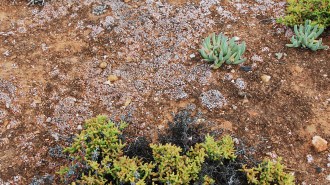 Ecosystems
EcosystemsBiocrusts reduce global dust emissions by 60 percent
Lichens and other microbes construct biological soil crusts that concentrate nutrients and slash global dust emissions.
By Nikk Ogasa -
 Agriculture
AgricultureThese six foods may become more popular as the planet warms
Millet, kelp, Bambara groundnut and cassava are resilient, sustainable and nutrient dense — good options for future dinner plates.
By Anna Gibbs -
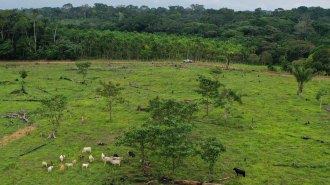 Climate
ClimateReplacing some meat with microbial protein could help fight climate change
Just a 20 percent substitution could cut deforestation rates and land-use CO2 emissions by more than half by 2050, a new study suggests.
-
 Climate
ClimateCoastal cities around the globe are sinking
Of 99 coastal cities, nearly one-third are sinking in some places at more than a centimeter per year, making them more vulnerable to rising seas.
-
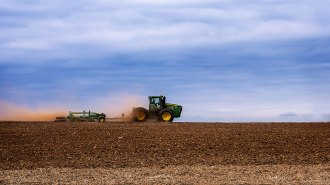 Agriculture
AgricultureMore than 57 billion tons of soil have eroded in the U.S. Midwest
Researchers discovered startling soil erosion rates in the Midwest. Farming has worsened erosion, but no-till practices and cover crops can help.
-
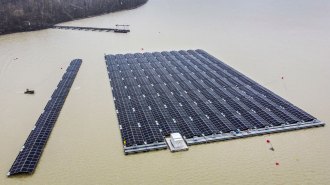 Climate
ClimateA UN report says stopping climate change is possible but action is needed now
We already have a broad array of tools to reduce global greenhouse gas emissions in half by 2030, a new report finds. Now we just have to use them.
By Carolyn Gramling and Nikk Ogasa -
 Climate
ClimateWally Broecker divined how the climate could suddenly shift
Wally Broecker’s insight into the shutdown of the great ocean conveyor belt spurred the study of abrupt climate change.
-
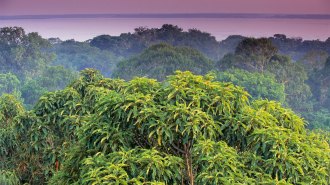 Climate
ClimateForests help reduce global warming in more ways than one
Trees are often touted as bulwarks against climate change for their capacity to sequester carbon, but that’s just one part of the story.
By Nikk Ogasa -
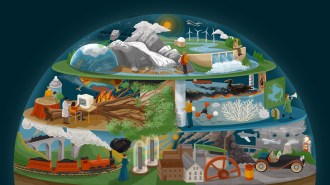 Climate
ClimateHow did we get here? The roots and impacts of the climate crisis
Over the last century and a half, scientists have built a strong case for the roots and impacts of human-caused climate change.
-
 Climate
ClimateA UN report shows climate change’s escalating toll on people and nature
The latest United Nations' IPCC climate change report underscores the urgent need for action to avoid the worst consequences of global warming.
By Nikk Ogasa -
 Tech
TechMaterials of the last century shaped modern life, but at a price
From our homes and cities to our electronics and clothing, the stuff of daily life is dramatically different from decades ago.